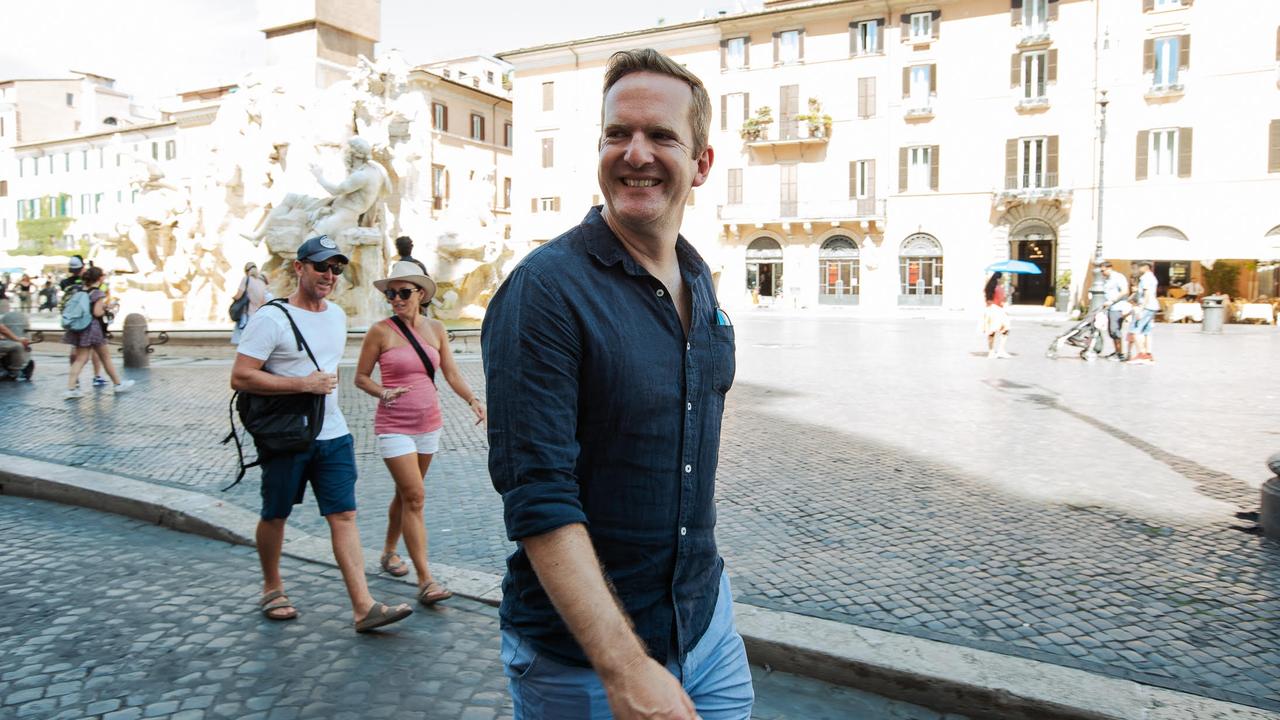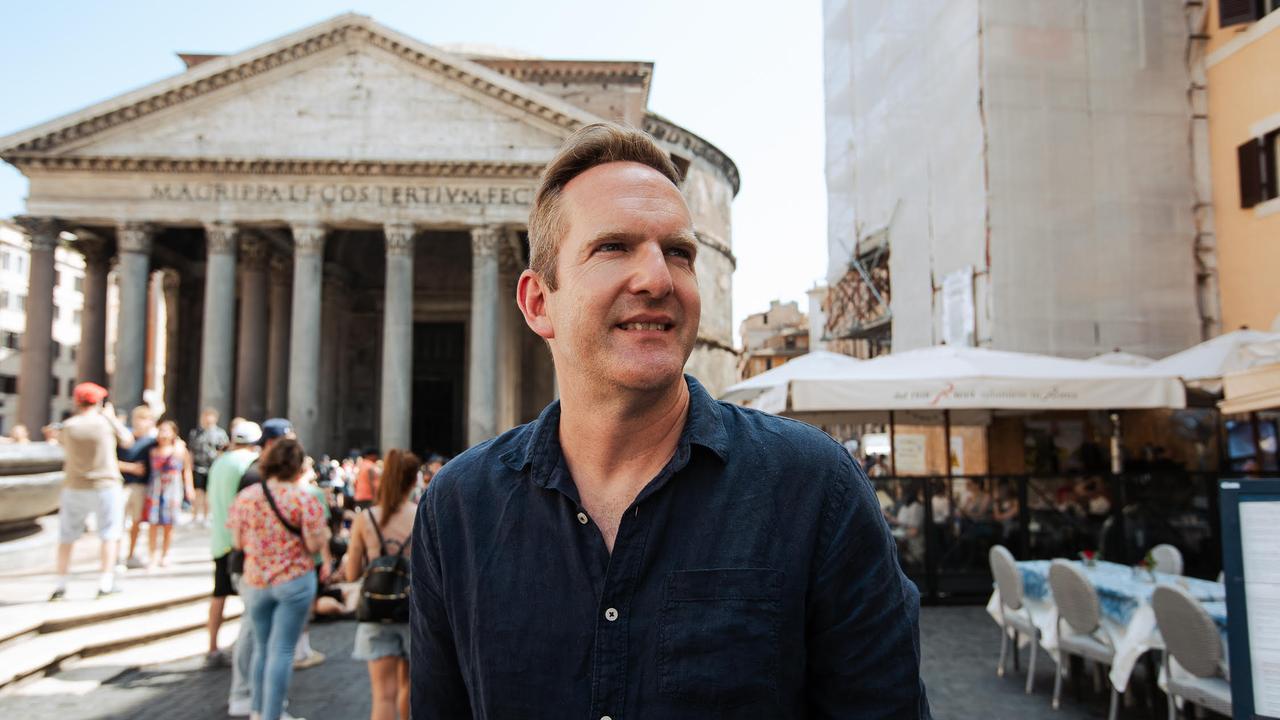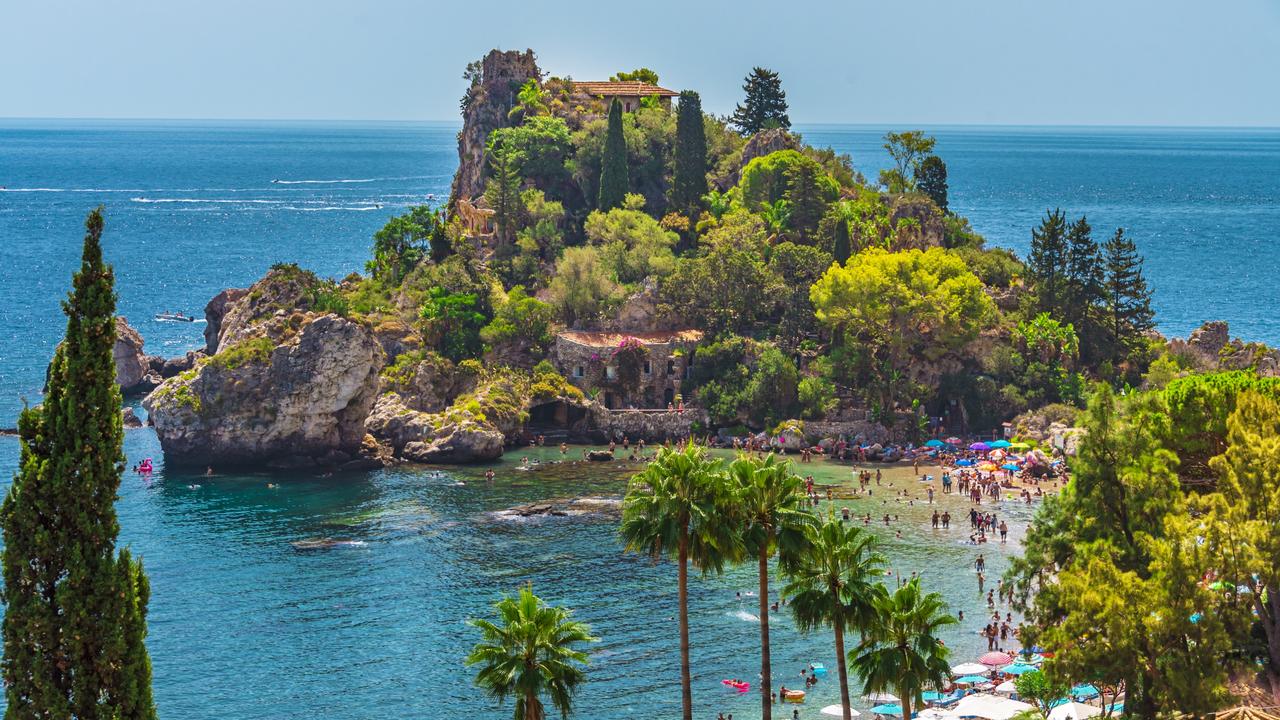Rising temperatures threaten popularity of European summer holiday
Could climate change spell the end of the European summer holiday? One travel chief believes Australians will alter their plans in the years ahead.

Business
Don't miss out on the headlines from Business. Followed categories will be added to My News.
An Australian company specialising in sustainable travel has predicted the end of the “Euro summer” holiday, as rising temperatures turn off tourists.
Intrepid Travel chief executive James Thornton said climate change and global warming would definitely alter the way people travelled, where they travelled and for how long.
July has been listed as the world’s hottest month in recorded history and Mr Thornton said he expected to see European bookings shift to May and September in the years ahead.
“I’ve just had eight weeks in Europe and it was incredibly hot, to the point where we decided not to do a trip to Sicily at the end of July because of the heat,” he said.
“There were temperatures in the mid 40s by day, low 30s at night, rolling blackouts that made airconditioning a challenge and some wildfires around the airport.
“I think we’re going to see May and June become very popular and September and October as well, because not only is it not as intensely hot, the crowds are less and you’ll have a better experience.”
Intrepid was experiencing continued growth in demand for sustainable travel – with walking and trekking tours among the most popular itineraries.
Mr Thornton said the company had been carbon neutral since 2010, and kept updating its itineraries to ensure a “lighter carbon footprint”.
“There is no getting away from the fact travel produces somewhere between 8 and 11 per cent of greenhouse gas emissions and that’s not going away anytime soon,” he said.
“We do expect in the next 10 years progress to be made, and the availability of sustainable aviation fuels.
“I think the key thing is how you travel when you get to your destination and how long you go for.”

He said Intrepid discouraged long-haul trips of just a week or two and was seeing more extended trips as travellers took advantage of remote working arrangements.
“We can’t change the fact it’s still carbon intensive to jump on a plane to go from one side of the world to the other, but something Intrepid tries to do is remove shorter duration flights from our itinerary,” Mr Thornton said.
“Train travel is very accessible in Europe and it’s often a better experience, so it’s about trying to reduce carbon output when you’re in a destination.”
All Intrepid itineraries came with carbon labelling, so customers can see the impact they are making.
Antarctic cruises were the most carbon intensive, and walking and trekking tours the least, Mr Thornton said.
“It’s important to remember that travel is still the number one source of income to many countries around the world, and getting out and seeing the world and recognising that people often have more similarities than differences can have a powerful impact as well,” he said.
Recently named in Time Magazine’s list of the top 100 most influential companies in the world, the Australian-founded and majority owned Intrepid Travel is having its most successful year in its 34 years of operation.
Revenue was expected to reach $600m, up from $500m in 2019, thanks to record bookings.

The success was partly attributed to the “pent-up travel demand” generated by the Covid-19 pandemic, and two years of being unable to travel.
“It’s also a recognition of that movement consumers are increasingly having towards wanting experiences over material possessions and a desire to travel with a bit more purpose and a lighter footprint as much as they can,” Mr Thornton said.
While bucket list trips were on full throttle, more customers were spending record sums on itineraries.
“We’ve responded by building a new range of trips, our comfort and premium trips,” he said.
“These are based on the same ethos as any standard Intrepid trip, which is getting out and meeting the local people, trying the local foods, staying in local accommodation and using local transport.
“The difference is the transport is more first class, so first-class train travel through to a destination and the hotels we’re using are at a 4-star level, as opposed to the traditional 2.5 to 3-star level.”
Further expansion into the UK and US was on the cards, where “massive target audiences” awaited.
Currently about 40 per cent of Intrepid’s customers are Australian, 30 per cent from the US and 25 per cent British, while the balance was made up of New Zealanders and Europeans.
“Obviously Australia is a great market for us but it’s still a country of 25 million people, whereas the UK has 60 million, and the US 300 million so massive target audiences are there for us,” Mr Thornton said.
More Coverage
Originally published as Rising temperatures threaten popularity of European summer holiday









